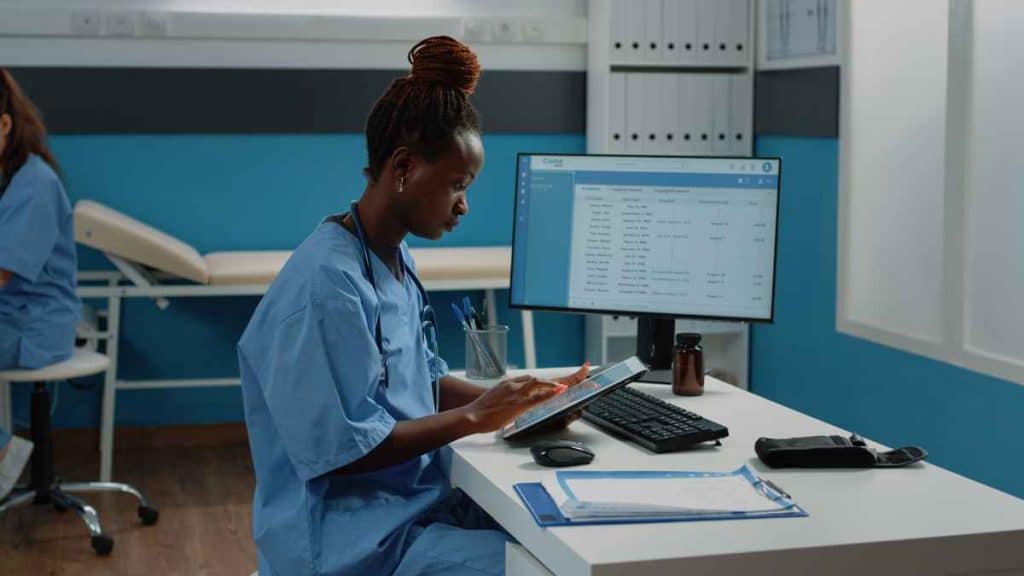A career as a medical assistant can be very exciting and very gratifying, but it can also be nerve-wracking with advances in technology. This means that medical assistants must become comfortable with technology as it’s now a major part of their lives.
Technology and the use of technology in the medical field must be an integral part of the training as a medical assistant. To prevent the new medical assistants from feeling overwhelmed when they enter the job market, the educational institution must ensure that they are fully conversant with modern technology as used in the medical field. This means the prospective student must carefully assess the quality of the schools. This is where a website such as TopMedicalAssistantSchools can be a valuable resource.
Universal Technology Used by Medical Assistants
The basic equipment used by medical assistants will depend, to a large degree, on where they work. However, most medical assistants take and analyze blood samples and track patient’s vital signs. This means that medical assistants will use various blood chemistry analysis equipment, EKG machines, and other testing equipment. If the medical assistant has taken further training, such as cardiovascular medicine, then they will use more complex equipment. There are various ways how to become a Medical Assistant in 6 weeks so that you can perform these tasks. Through online programs, you can be able to complete in as little as 6 weeks.
Evolving Technology for Medical Assistants
As with any field, medical assistants have had to adapt to evolving technology. The first major change was the move to electronic health records (EHR). Almost a decade ago, all patient health records had to be moved to an electronic format, which meant medical assistants were largely involved in the initial move from paper to digital formats. Today they are important in the machine of coding and updating of electronic medical records.
Healthcare is one discipline where technology is constantly evolving, and the ubiquitous use of mobile technology has not been ignored by the medical profession. Everyone carries a mobile device today, and it has become a focus area for the medical profession. Medical professionals are encouraged to focus on the patient’s experience, and mobile technology is underpinning this move.
The Benefits Of Wearable Technology
The healthcare profession is focussing on quick, convenient, and accurate medical processes, so wearable technology such as FitBits and similar devices is playing an important role in patient treatment. These devices can provide data such as the number of steps a patient has taken in a day, blood sugar results, or blood pressure readings to the medical practice. Medical assistants must understand how these wearable devices can enhance the patient experience and how they will continue to impact healthcare in the future.
Using smartphones, telehealth is another area where technology is impacting the tasks of a medical assistant. Patients can now log into the healthcare facility’s patient portal and chat via a video link with a medical assistant, nurse, or doctor instead of physically going to a doctor’s office.
In combination with a wearable device, this makes it easier for healthcare professionals to track a patient’s progress, prescribe changes in treatment, and answer questions the patient may have. Telehealth extends the resources at the fingertips of the healthcare profession and can save time in providing the best care.
The Medical Assistsant
The medical assistant will be at the forefront of telehealth advances. Speaking with a patient and consolidating laboratory results, test results, patient records, and other information for the doctor before a telehealth call will be important. Having all this information at their fingertips will improve the doctor/patient relationship as well as speed diagnosis.
Diagnosis of disease has always been a complex area and subject to the interpretation and memory of the doctor. Now we are living in the age of super-computers such as the IBM supercomputer that has been given the nickname “Dr Watson.” This amazing machine has been used to assist in the diagnosis of disease, especially in complex or misleading cases. There are also intriguing advances in the use of artificial intelligence within the medical profession.
In the future, the input of data to such machines will fall within the duties of the medical assistant. Hand in hand with this will be data analysis responsibilities, where the medical assistant will look at a patient’s data and bring any anomalies to the attention of the doctor or nurses with whom they work.
Into the Future
All medical professionals, including medical assistants, will have to upgrade their technical skills to adapt to the tech-savvy world in which we live. A career as a medical assistant will never be boring, and using technology will make this career choice stimulating and exciting for anyone. Research and educational institutions are working on technology and software that will impact the healthcare profession in years to come.
The medical assistants of the future will have to be high-skilled and well-trained individuals who are adaptable and conversant with the technology that is advancing health care. The medical assistant of the future will not live in the shadows but will be on the front lines of the healthcare field. They will be an indispensable member of staff who contributes to the patient’s health.

